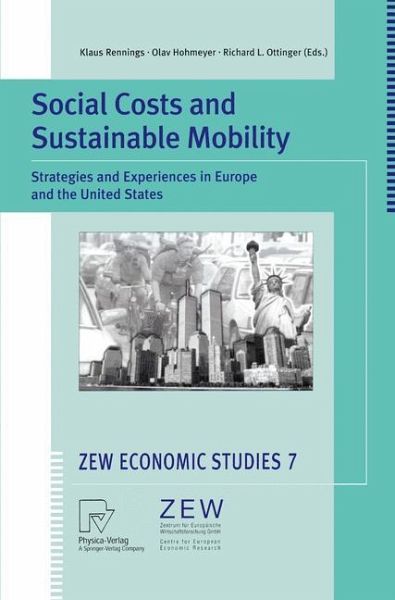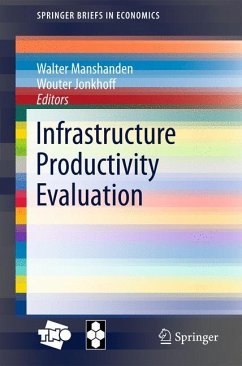
Social Costs and Sustainable Mobility
Strategies and Experiences in Europe and the United States
Mitarbeit: Rennings, Klaus; Ottinger, Richard L.; Hohmeyer, Olav

PAYBACK Punkte
20 °P sammeln!
The focus is on the application of soft computing to a new emerging discipline called ä/it financial engineeringü. Financial engineering can be seen as a field emerging out of an attempt to address the issues of concern in finance with the tools and perspectives of engineering, especially electrical and systems engineering. The ability to measure almost all financial variables in quantifiable terms, the strong emphasis on optimization, and the centrality of time dependency provide for a strong overlap of those disciplines. This all provides a synergistic effect, and makes it possible to more effectively and efficiently deal with a variety of problems related to broadly perceived financial analyses. In the first part of the volume a discussion of more general issues related to fuzziness, verbal variables and decision making is provided. In the second part issues related to the use of soft computing techniques, mainly of fuzzy sets theory and neural networks, to financial time series analyses and prediction are dealt with. The third part of the volume is concerned with various issues relevant for the stock and currency markets. The fourth part is concerned with the use of soft computing methods for various corporate financial analysis. The fifth part is devoted to the use of soft computing techniques for the calculation and analyses of risk and value, mainly in the sense of credit solvency, risk of business failure, insurance risk, valuation of real estate properties, etc. The sixth part is concerned with various issues related to auditing and analysis for financial reports.
Fair and efficient pricing has become increasingly important in international environmental and transport policy. Thus the valuation and internalization of social costs is now a crucial element within strategies towards sustainable mobility. The book provides methods and results from major European and American studies evaluating both social costs of transport and first experiences with their internalization in different contexts: infrastructure planning, urban road pricing and highway tolling. Additionally, complementary non-monetary instruments for a transition towards sustainable mobility are presented and discussed.












